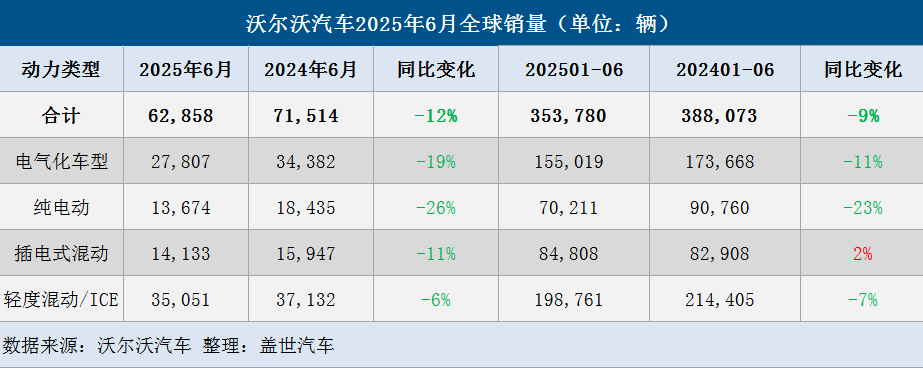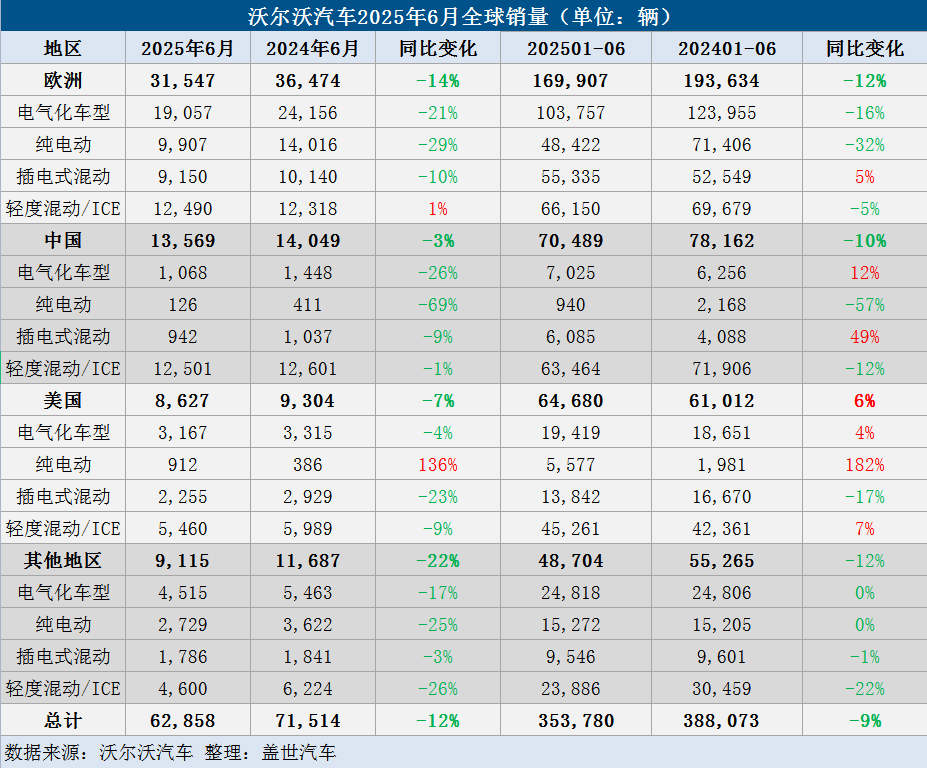Recently, Volvo Cars announced that its global sales in June reached 62,858 vehicles, a 12% decrease compared to the same period last year, marking the fourth consecutive month of decline. From January to June, the company's cumulative global sales totaled 353,780 vehicles, down 9% year-on-year. Volvo's data also revealed that sales of its pure electric models dropped by 26%, accounting for 22% of total sales. Overall sales of electrified models, including plug-in hybrids, fell by 19%, representing 44% of total sales. A spokesperson for Volvo Cars stated in an email response to Reuters, "The sales performance this month confirms the challenging market environment we previously pointed out, and 2025 will be a challenging transitional year on the path to achieving our long-term growth ambitions." Regionally, Volvo's sales in the European market in June reached 31,547 vehicles, down 14% year-on-year. Sales of electrified models in Europe decreased by 21%, making up 60% of the company's total sales in the region for the month. In the U.S. market, Volvo sold 8,627 vehicles in June, a 7% decline year-on-year, with a 4% decrease in sales of electrified models. In China, Volvo's sales in June amounted to 13,569 vehicles, a 3% drop compared to June 2024, with sales of electrified models at 1,068 units, down 26% year-on-year. In terms of models, the best-selling vehicle for Volvo in June was the XC60, which sold 20,706 units, compared to 19,222 units in the same month last year. The XC40/EX40 followed, with total sales of 15,442 units, down from 16,195 units in June 2024. The flagship SUV XC90 sold 8,842 units, down from 9,139 units in the previous year. Following the sales data release, Volvo's stock rose by 4.8%, although the stock has seen a cumulative decline of 24% this year. In May, Volvo announced plans to cut 3,000 jobs, primarily for white-collar positions, to cope with rising costs, slowing EV demand, and global trade uncertainties. Last month, when announcing cost-cutting measures, Volvo also withdrew its financial forecasts for the year, citing weakened consumer confidence and tariffs leading to instability in the global automotive market, making performance prospects difficult to predict.
Volvo Reports Decline in Global Sales Amid Trade Tariffs and Weak EV Demand

Images

Share this post on: